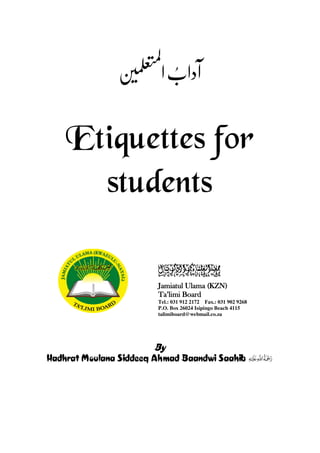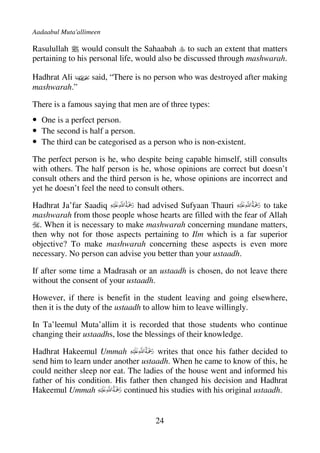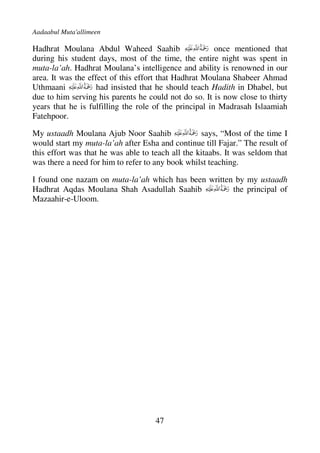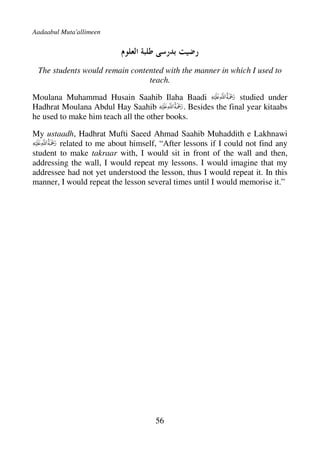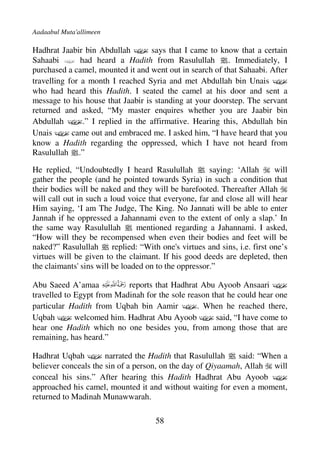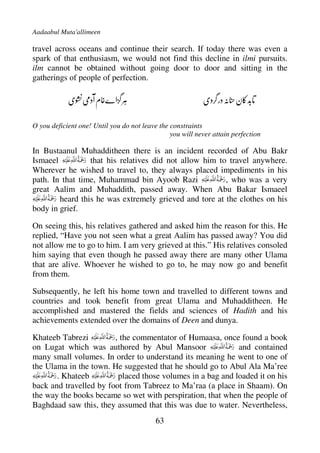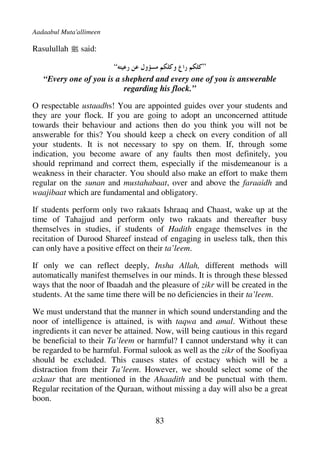The first etiquette for students is to have sincerity of intention when acquiring religious knowledge. A student should seek knowledge solely for the pleasure of Allah and to secure success in the hereafter, not for any worldly motives like showing off, arguing with others, or gaining status. Hadith warn that actions done without sincere intention for Allah will not be rewarded. Knowledge should not be used as a means to earn worldly gains, as this angers Allah. Students must protect knowledge from pride and preserve its noble position, and ensure their actions match their knowledge.
